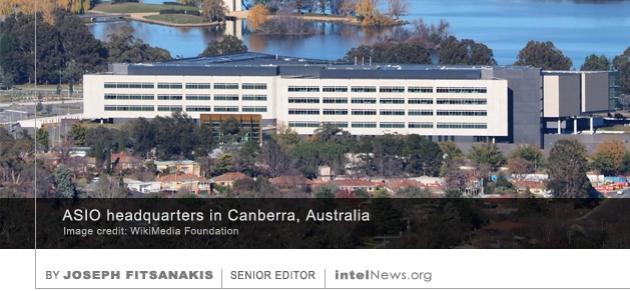
Foreign intelligence collection and espionage threats against Australia are greater today than at any time during the Cold War, according to a senior Australian intelligence official. The claim was made on Wednesday by Peter Vickery, deputy director general of the Australian Security Intelligence Organisation (ASIO), the country’s primary counterintelligence agency. He was speaking before a parliamentary committee that is considering aspects of a proposed bill, which aims to combat foreign influence on Australian political and economic life. If enacted, the bill would require anyone who is professionally advocating or campaigning in favor of “foreign entities” to register with the government. Several opposition parties and groups, including the Catholic Church, have expressed concern, saying that the bill is too broad and could curtail the political and religious freedoms of Australians.
But ASIO has come out strongly in favor of the proposed bill. Speaking in parliament on Wednesday, Vickery warned that Australia is today facing more threats from espionage than during the Cold War. “Whilst [the Cold War] was obviously a very busy time” for ASIO, said Vickery, his agency’s assessment is that Cold War espionage was “not on the scale we are experiencing today” in Australia. During the Cold War, ASIO was cognizant and aware of the major adversaries, he added. But today, the espionage landscape features “a raft of unknown players”, many of whom operate on behalf of non-state actors, said Vickery. The phenomenon of globalization further-complicates counterintelligence efforts, he added, because foreign espionage can be conducted from afar with little effort. Vickery noted that espionage and foreign influence in Australia “is not something that we think might happen, or possibly could happen. It is happening now against Australian interests in Australia and Australian interests abroad”. He also warned that the public knows little about the extent of espionage and foreign-influence operations taking place “at a local, state and federal level” throughout the country.
Earlier this week, the Catholic Church of Australia came out in opposition to the proposed legislation, which it sees as too broad. The religious denomination, which represents approximately 20 percent of the country’s population, said that the bill was too broad and could force Australian Catholics to register as agents of a foreign power. Technically, the Catholic Church is headquartered at the Vatican, which would make the organization a foreign entity under the proposed bill, the Church said in a statement.

No comments:
Post a Comment